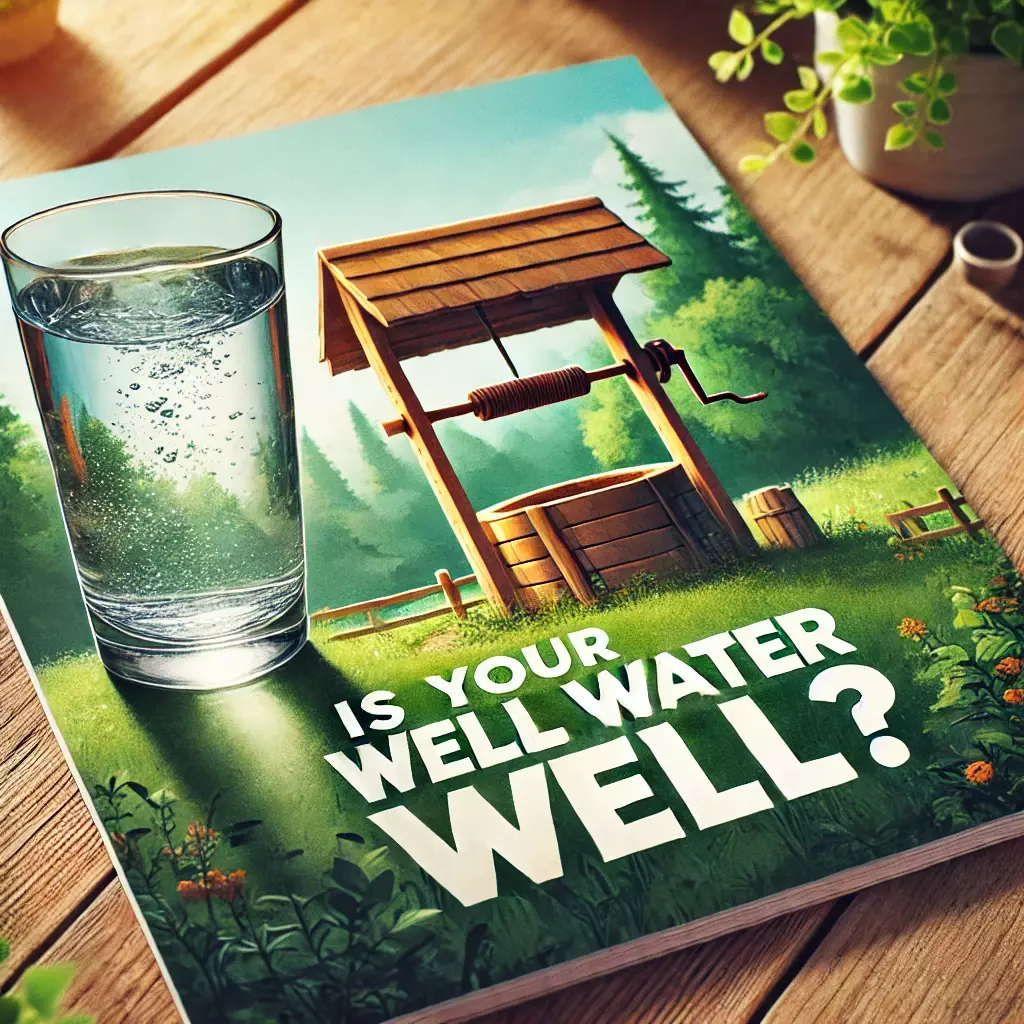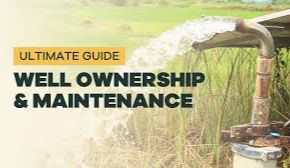Why Skipping a Well Test Could Cost You: A Real-Life Tale of Water Woes and Solutions


At Rethinking Real Estate, we’re all about making sure your home is safe and secure, and that includes the water you drink! If your property relies on a private well, it's essential to regularly test your water to ensure it’s free of contaminants.

Why Well Testing Matters
-
Protecting Your Health: Contaminants like coliform bacteria, nitrates, and even arsenic can be present in your well water without any noticeable signs. Since these contaminants can lead to serious health issues, especially for vulnerable groups such as children and pregnant women, annual testing is highly recommended. Water quality can fluctuate based on various factors, so testing regularly ensures you’re drinking safe water.
-
Ensuring Adequate Water Flow: Besides testing for contaminants, it’s also important to check the well's water flow, particularly if you plan to use the water for more than household needs. If you're planning to raise animals or use the well for irrigation, a flow test can determine if your well produces enough water to meet your requirements.
How to Test Your Well Water
In Washington State, private well owners are responsible for testing their own water. There are two primary water testing options available on the market today:
-
- At-home test stripsAt-home, do-it-yourself water testing kits are popular thanks to their low cost and rapid results. You can find dozens of them for sale on Amazon. But while you’ll have your results shortly after taking your samples, what you’ll see will be limited in both accuracy and information (there’s a reason professional lab equipment costs millions of dollars).
- Laboratory test kits. Laboratory water testing kits are more expensive and require waiting several days for results. But those results are far more accurate and comprehensive.
-
Contact a Certified Lab: If you decide to go the Lab Kit method, then you need to find a certified laboratory that can handle the testing. In Washington, there are many state-accredited labs that can analyze your water for common contaminants like coliform bacteria, nitrates, and arsenic. You can find one in your area by calling the Safe Drinking Water Hotline at 800-426-4791 or visiting www.epa.gov/safewater/labs.
Inspectors: Some home inspectors can also test the well water if you are buying a new home, so ask how they test (Lab vs Strip) and what the cost is. You also want to know which Lab they are sending it to. -
Collecting the Sample: The lab will provide instructions and the necessary materials for collecting a water sample. Follow the directions carefully, as improper sampling can affect the results. The time of day you collect your water sample can also impact your results.
Certain plumbing-dependent metals like lead are most likely to show up after water has sat in the pipes overnight. For sampling bottles labeled for metals testing, you may choose to collect them first thing in the morning. This is generally called a “First Draw Sample.”
Dissolved gasses and other VOCs are more likely to diffuse out of the water if they sit in the plumbing for a long time. To capture whether your water has VOCs (or radon) it’s often better to let the water run for a few minutes first. -
Testing for Flow: If you're concerned about water pressure or flow, this test involves running the water continuously to observe if the well can maintain steady pressure. It's especially crucial for properties with higher water needs, such as farms or homes with large gardens.
-
Review the Results: The lab will provide a report detailing whether the water meets safe drinking standards and if any further action is necessary. If contaminants are detected, treatment options like filtration or shock chlorination may be required.
A Recent Client’s Story
Water testing may seem like an unnecessary expense when buying a rural property, but skipping it can lead to much bigger problems down the road. Recently, we worked with a client purchasing a rural property with a private well. Since they planned to keep animals, we strongly recommended conducting not only a water quality test but also a flow test. The client was initially hesitant, considering the $450 cost. However, after explaining the importance of ensuring both water safety and the well’s flow capacity, they decided it was worth the investment.
What the tests revealed was eye-opening. After just a few minutes of running, the well lost half its pressure, and the water turned slightly brown—an indication of potential issues. This could have easily been missed if they hadn't performed the tests. Now, we're helping the client explore the costs and process of installing a new well, which can be quite an undertaking.
In this specific area, wells typically need to be drilled between 150 and 400 feet to reach a reliable water source. For this client, the estimated cost for a new well is around $15,000. That’s a hefty price tag, and it’s certainly not a surprise anyone wants after closing on their dream property.
The takeaway? The cost of water testing pales in comparison to the potential expenses—and headaches—of discovering well issues after the purchase. Testing is an essential step to protect your investment and ensure the property can meet your needs, especially in rural areas with private wells.

When Should You Test?
-
Annually for Quality: At least once a year, test for coliform bacteria and nitrates. If you live in an area with known arsenic contamination, test for that as well.
-
After Major Events: If there’s been flooding, nearby construction, or you’ve made repairs to your well system, it’s a good idea to test the water immediately afterward.
-
During Property Transactions: If you’re buying or selling a property with a private well, water testing is typically required as part of the sale process to ensure the water is safe for consumption.
Why Invest in Testing?
We get it testing may seem like an unnecessary expense, but it's a critical part of ensuring the safety and functionality of your home’s water system. Whether you're dealing with unexpected issues like our recent client or ensuring your water is safe to drink, a small upfront cost can save you from much larger problems down the road.
💡 Curious about more homeownership tips? Follow us at Rethinking Real Estate for insights and advice that keeps you informed! We have more blog posts at
or go to our youtube channel at
Categories
- All Blogs (105)
- Inheritance & Estate Planning (4)
- Auburn real estate (12)
- Bonney Lake Housing Market (4)
- Bonney Lake real estate (12)
- Buyer & Seller Advice (13)
- closing a home sale in Washington (7)
- common mistakes that delay real estate closings (3)
- contingent offer pros and cons Pierce County (1)
- Contingent Offers Explained (1)
- Downsizing & Retirement Living (3)
- Home Buying Advice (3)
- home closing tips Lake Tapps (6)
- home sale contingency Lake Tapps (2)
- Home Selling Advice (15)
- Home Selling Strategies (15)
- how escrow works when buying a house (2)
- how to protect your funds during a home purchase (1)
- Lake Tapps Real Estate (13)
- leaving home to kids (2)
- Pierce County Real Estate (14)
- Pierce County Real Estate Tips (12)
- Real Estate Closing Process (4)
- Real Estate Market Trends (9)
- real estate professionals in Western Washington (7)
- Real Estate Tips (14)
- real estate wire fraud prevention (1)
- senior living (3)
Recent Posts











If you haven't subscribed to our newsletter, you're missing out on great stories like the one above that could be coming right to your inbox every few weeks.
Please use the form to request a subscription.


